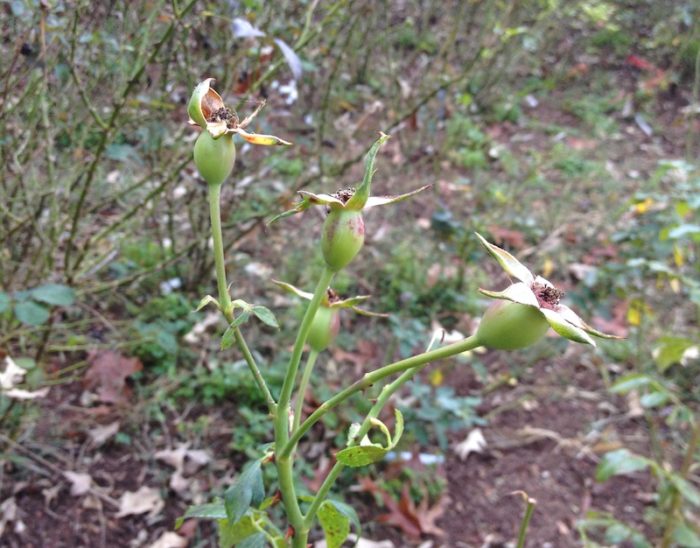
Here in the upstate of South Carolinas fall is in the air. The dogwood and sweet gum trees are leading the parade of fall colors, berries are starting to appear on the hollies and the squirrels are making their fall push to collect as many acorns as they can to store for winter.
This also means the roses are slowing down to get ready for their winter nap. This is a good thing, as that gives them a chance to rest and get ready for next spring’s big show. While we have discussed stopping fertilizers to help them go to sleep there is another thing you can do.
Stop deadheading.
First of all, what is deadheading? Deadheading is the act of cutting off old blooms to encourage new ones. While roses will certainly bloom again if you don’t deadhead, it is true they will rebloom quicker if you do. I generally just snap the the old blooms off when they are finished or do a bit of grooming and re-shape the bush when I’m deadheading.
The second thing to know is why do roses bloom in the first place? The bloom because that flower is the first stage of the rose instinctively doing what all things in nature want to do. Reproduce itself. A rose sets a flower, the petals fall off and they are followed by what are called hips. Hips are those bright, mostly orange, berries you see on roses where a flower used to be. Inside those hips are rose seeds. Yes, actual seeds that have the ability to grow into new roses. And this is how roses reproduce themselves.
This means when you deadhead the rose hasn’t finished its “job” and so will produce another flower in the hope of it becoming a hip. It’s only when the rose “sets” hips, that it goes to sleep and takes a break. And that is exactly what we want in late fall in climates with a true winter. We want the rose to go to sleep.
If we continue deadheading then the rose will instinctively try to put out new flowers. The danger here is that it pushes sap up into the outer, most tender branches to do so. A sudden freeze could freeze the sap. When liquids freeze they expand and this literally blows the rose apart from within by the freezing sap rupturing the cell walls. In fall roses instinctively send their sap down into the roots so there is no danger of that. Deadheading interferes with that process and you run the risk of damaging the roses.
I realize this all sounds very doom and gloom, but it isn’t. Roses are tough and they can survive a sudden freeze with some sap still in the canes. But why risk it just for the sake of another round of blooms. Like all other aspects of rose care, our roses are much better off if we work with their natural rhythms rather than against them.
A side benefit to letting the roses set hips is they are a great food source for birds during the winter. Encouraging birds to stay in your garden means they will be there in spring to be part of your army to help battle aphids and the like.
And that is why I don’t deadhead in the fall. And encourage you to do the same.
Happy Roseing
Paul
Fine Gardening Recommended Products
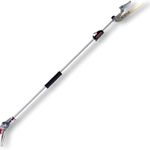
ARS Telescoping Long Reach Pruner
Fine Gardening receives a commission for items purchased through links on this site, including Amazon Associates and other affiliate advertising programs.
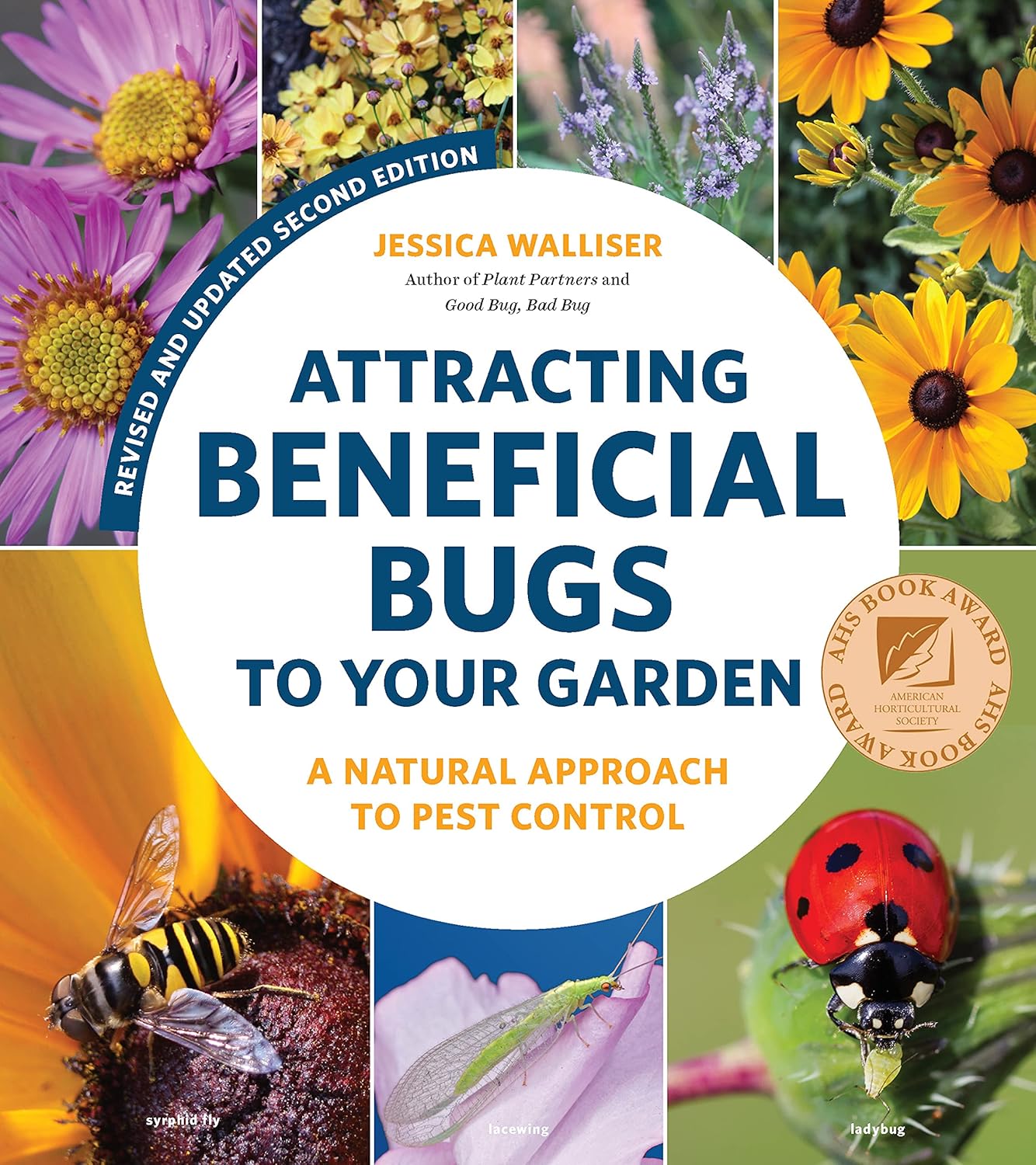
Attracting Beneficial Bugs to Your Garden, Revised and Updated Second Edition: A Natural Approach to Pest Control
Fine Gardening receives a commission for items purchased through links on this site, including Amazon Associates and other affiliate advertising programs.
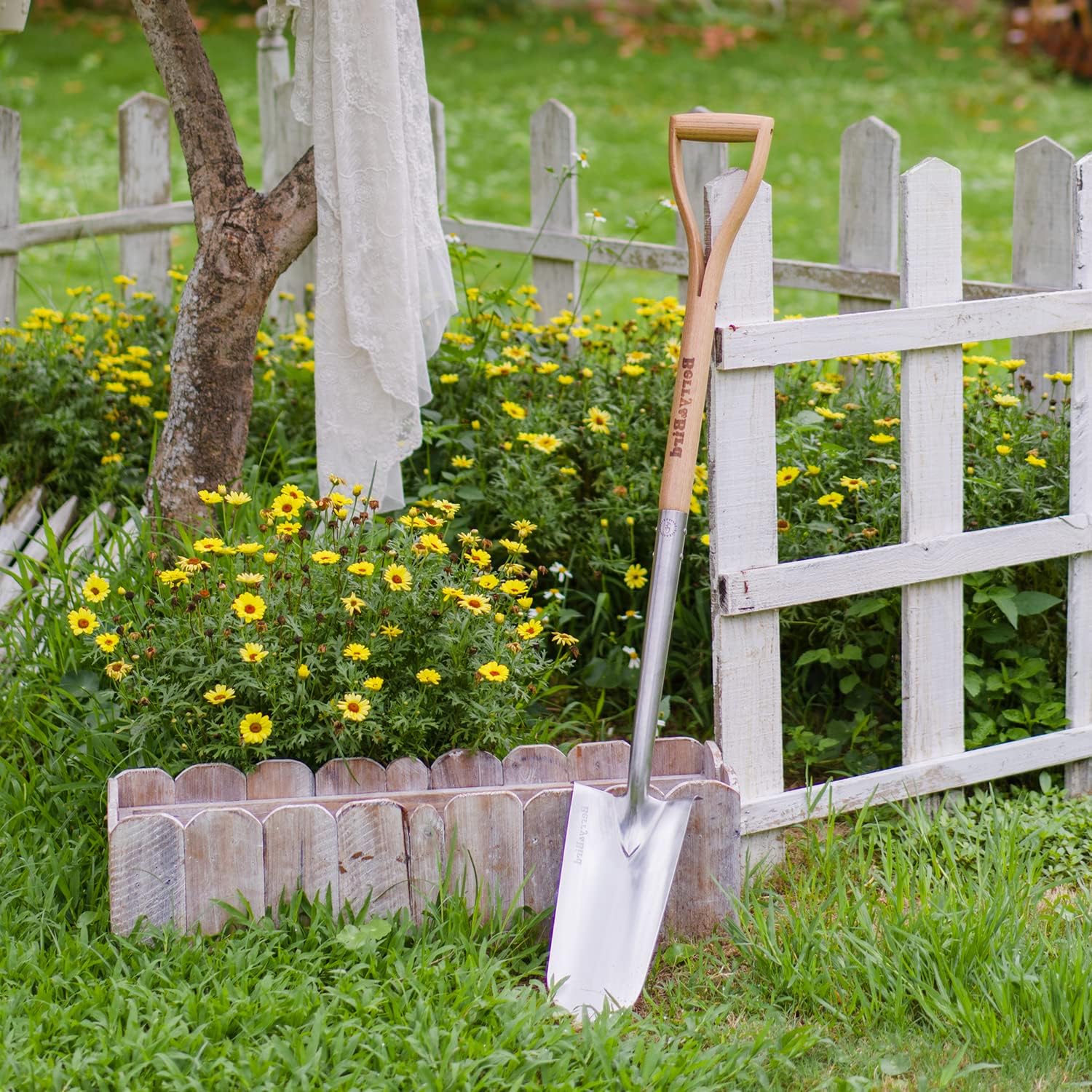
Berry & Bird Rabbiting Spade, Trenching Shovel
Fine Gardening receives a commission for items purchased through links on this site, including Amazon Associates and other affiliate advertising programs.


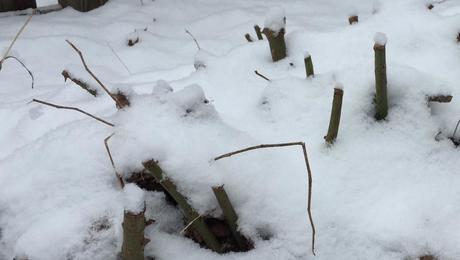
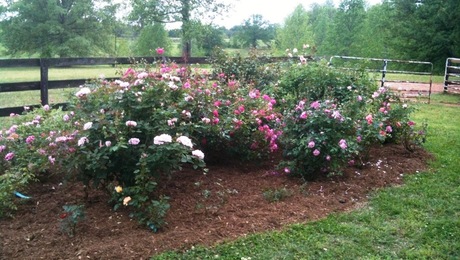
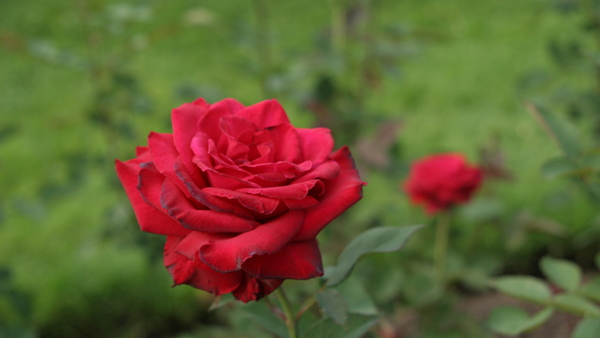
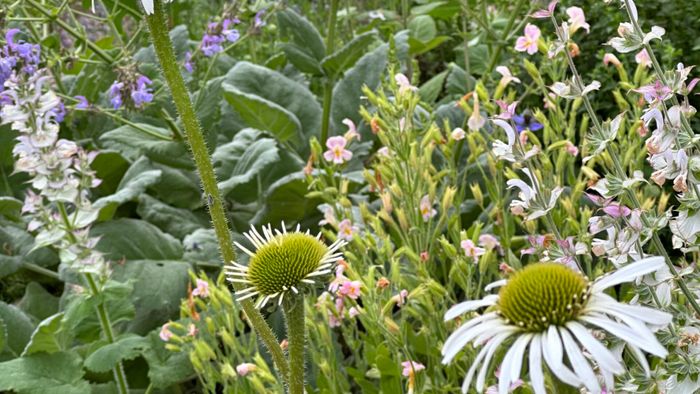
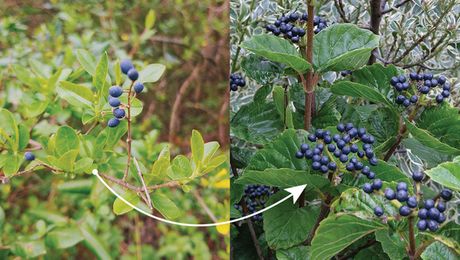











Comments
Excellent information! Thanks Paul!
Glad you liked it!
Good tips Paul thank you! We normally deadhead our rhodies and roses, will watch this!
I have a stand of Alba Plena Rosa Rugosas and one day this past season while dead heading them an elderly woman walking by stopped and told me that wherever a hip grows on a rugosa it will never flower on that stem. She then went on to explain as a little girl along Maine coast her job was to collect hips for jelly and tea and was told to get every last one so that they flowernext year. Is there any truth in what she was telling me? I always leave flowers in Sept to turn to hips.
Hi MapleManor.
No, no truth at all.
PZ writes:
A side benefit to letting the roses set hips is they are a great food source for birds during the winter. Encouraging birds to stay in your garden means they will be there in spring to be part of your army to help battle aphids and the like.
From a northern Illinois gardener:
This is a bit of a misnomer, as the 'meat eating' birds are long gone from our gardens—depending on how far North one lives—by mid- to late Oct or early November at the very latest. (I've never noticed if the hips were fed upon by the seed-eaters which stay all winter...)
But the others will return next Spring, whether we've left hips or not.
Other than that - we love your writings and have enjoyed and employed many of your tips and ideas over the years. THX!
Thank you! Most of what I've seen on this subject is pro-deadheading and I've suspected that there were times when it's really not such a good idea.
Thank you-just what I needed to know.
Log in or create an account to post a comment.
Sign up Log in